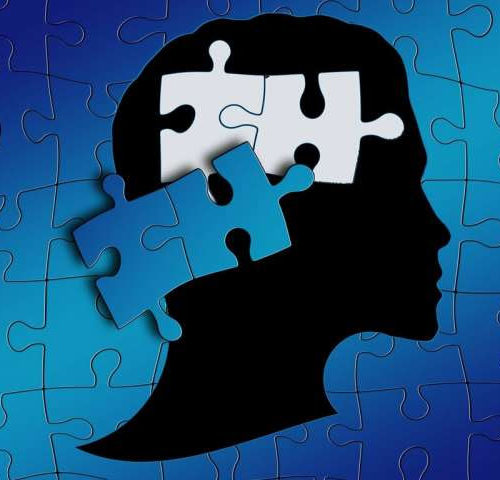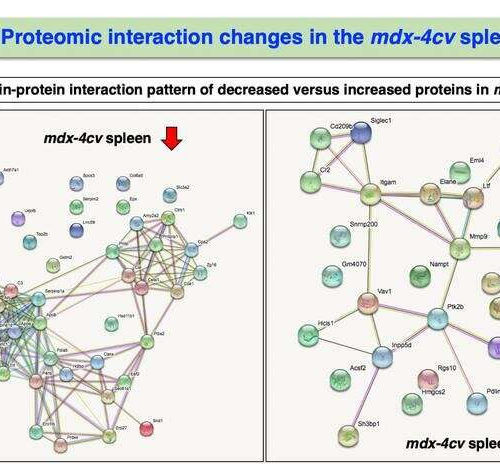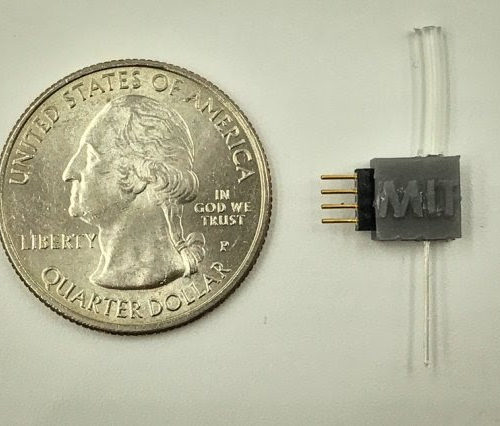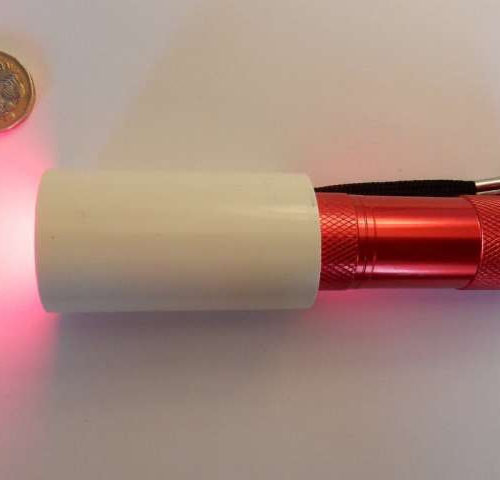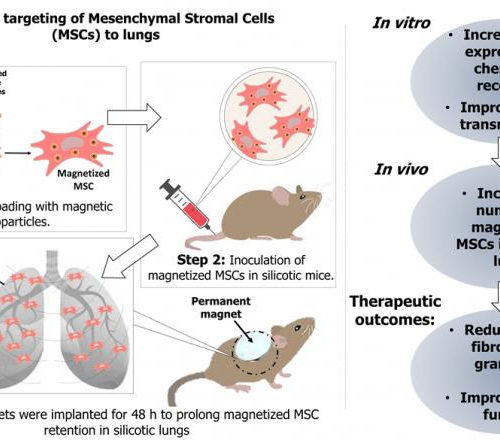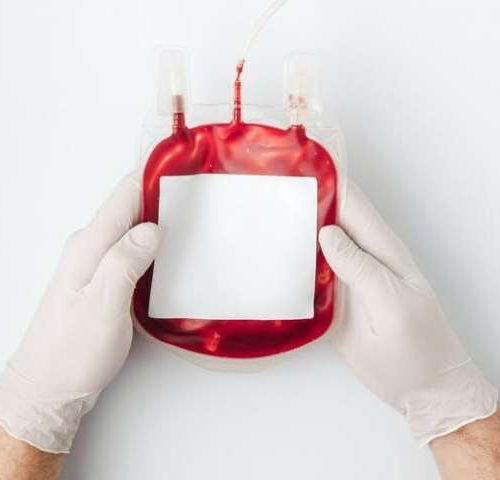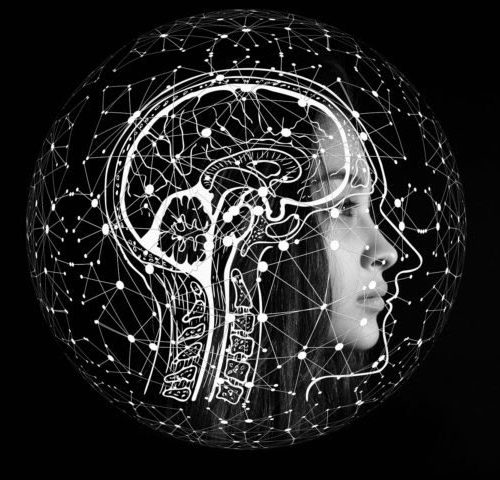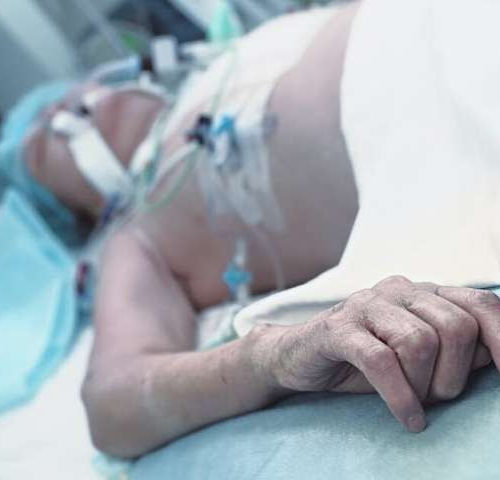by Ghent University Tracking the extent to which other people think differently from yourself appears to be more relevant than understanding someone else’s thoughts per se. Neuroscientists at Ghent University and the University of New South Wales (Sydney) came to this conclusion. Through a systematic review and critical analysis of more than 50 neurological imaging...
Tag: <span>Cellular conversation</span>
‘Crosstalk’ between muscle and spleen in Duchenne muscular dystrophy
by University of Bonn The figure shows an overview of the potential protein-protein interaction patterns at reduced (left) and increased (right) protein concentrations in the spleen of Duchenne mice. Credit: Maynooth University Duchenne muscular dystrophy (DMD) is the most common muscle disease in children and is passed on by X-linked recessive inheritance. Characteristic is a...
Producing a gaseous messenger molecule inside the body, on demand
Method could shed light on nitric oxide’s role in the neural, circulatory, and immune systems. Nitric oxide is an important signaling molecule in the body, with a role in building nervous system connections that contribute to learning and memory. It also functions as a messenger in the cardiovascular and immune systems. But it has been...
Declining eyesight improved by looking at deep red light
by University College London Staring at a deep red light for three minutes a day can significantly improve declining eyesight, finds a new UCL-led study, the first of its kind in humans. Scientists believe the discovery, published in the Journals of Gerontology, could signal the dawn of new affordable home-based eye therapies, helping the millions...
Magnetic guidance improves stem cells’ ability to treat occupational lung disease
Durham, NC – Results of a study released today in STEM CELLS Translational Medicine(SCTM) may point the way to a cure for a serious lung disease called silicosis that affects millions of workers worldwide. Silicosis results from years of breathing in dust microparticles of silica by workers in professions such as construction and sand blasting....
Biochemical alterations revealed in patients with Lesch-Nyhan disease
UNIVERSITAT AUTONOMA DE BARCELONA An international study by the Institute of Neuroscience of the UAB (INC-UAB), Emory University and Hospital Universitario La Paz, published in the PNAS journal, shows that patients suffering from Lesch-Nyhan, a rare neurological disease, present biochemical alterations in skin cells (fibroblasts), urine and cerebrospinal fluid. Researchers have also discovered why these...
Seven things you might not know about blood
by Adam Taylor, The Conversation Blood is fascinating. Many people learn at school that its function is to transport oxygen and nutrients around the body and remove waste products. But blood has many more functions, including defence against pathogens, regulating our temperature, and keeping important internal chemicals and nutrients balanced. Here are some other things...
Brain study contributes to increased understanding of endocrine diseases
Many nerve cells in the brain region hypothalamus have unexpected origins and go through complex development programs, where millions of neurons assemble into a precisely knit network by birth. That is according to a study by researchers at Karolinska Institutet in Sweden and the Medical University of Vienna published in the journal Nature. The findings...
COVID-19 Vaccine: IntelliStem Technologies Announces Successful Development of Peptide-Based Vaccine Against COVID-19
TORONTO, ON – April 6th, 2020—INTELLiSTEM Technologies Inc, a biotechnology company pioneering cellular vaccines and peptide therapeutics, announced the successful development of a peptide-based vaccine (IPT-001) intended for human use against COVID-19. IPT-001 is a peptide-based vaccine developed using the novel coronavirus COVID-19. It was engineered using INTELLiPEPTIDOME™ Platform to target both the Spike (S)...
Does anyone know what your wishes are if you’re sick and dying from coronavirus?
by Louise D. Hickman, Jane Phillips and Patricia Davidson, The Conversation If you become seriously unwell with COVID-19 and are likely to benefit from active treatment and need a ventilator or are dying, do those closest to you know what type of care you would want? COVID-19 steals the luxury of time but these are...
- 1
- 2

